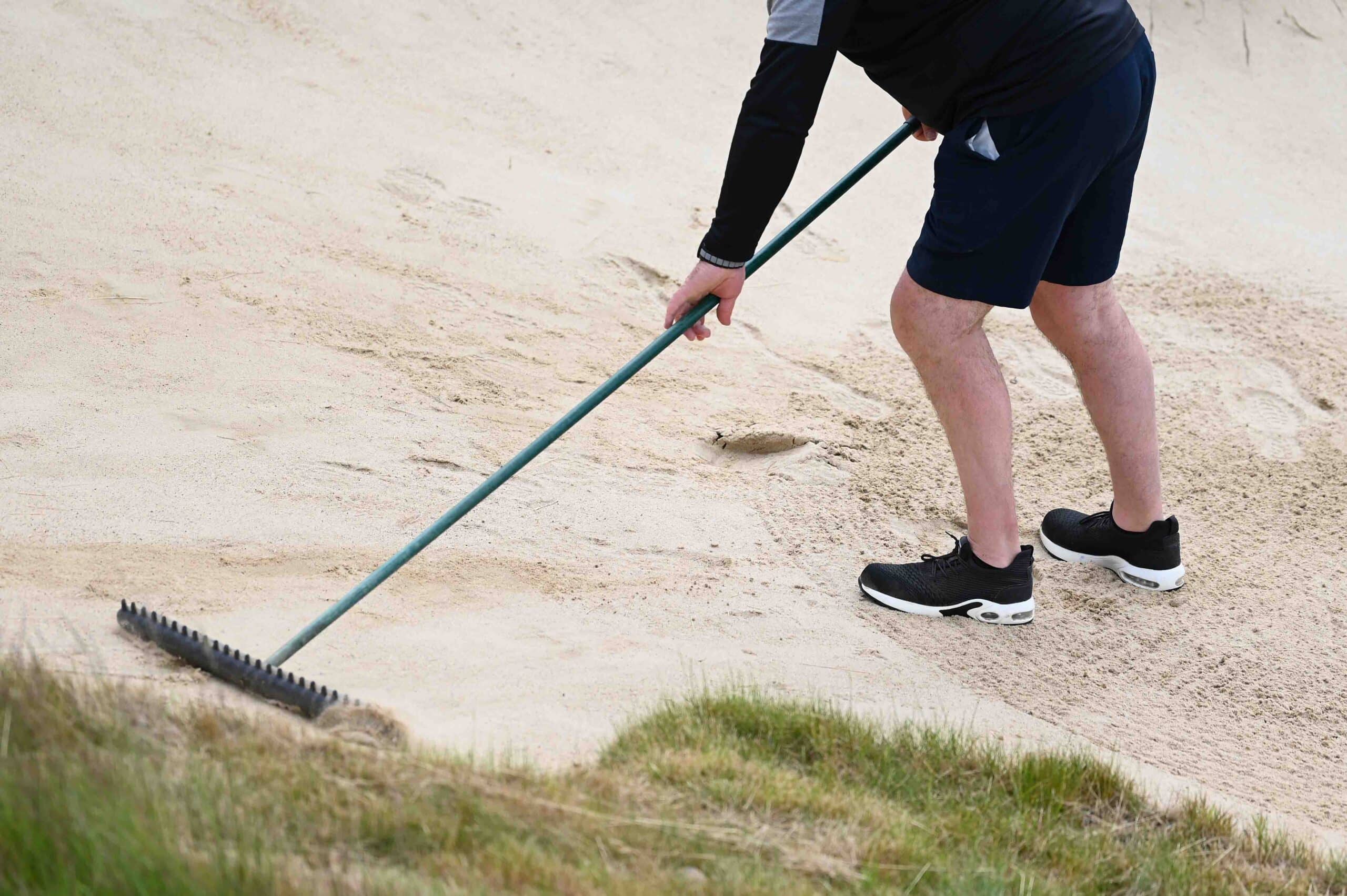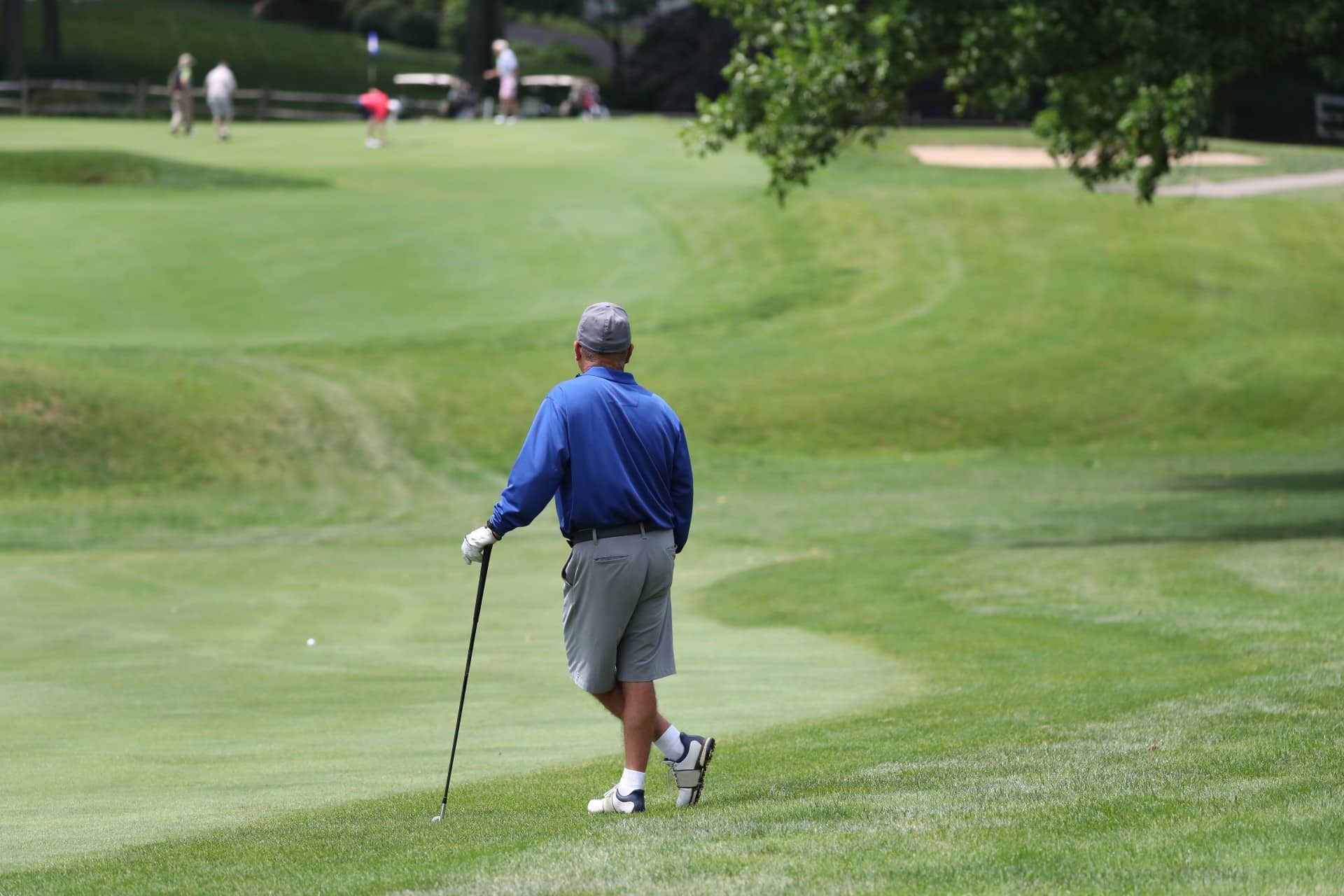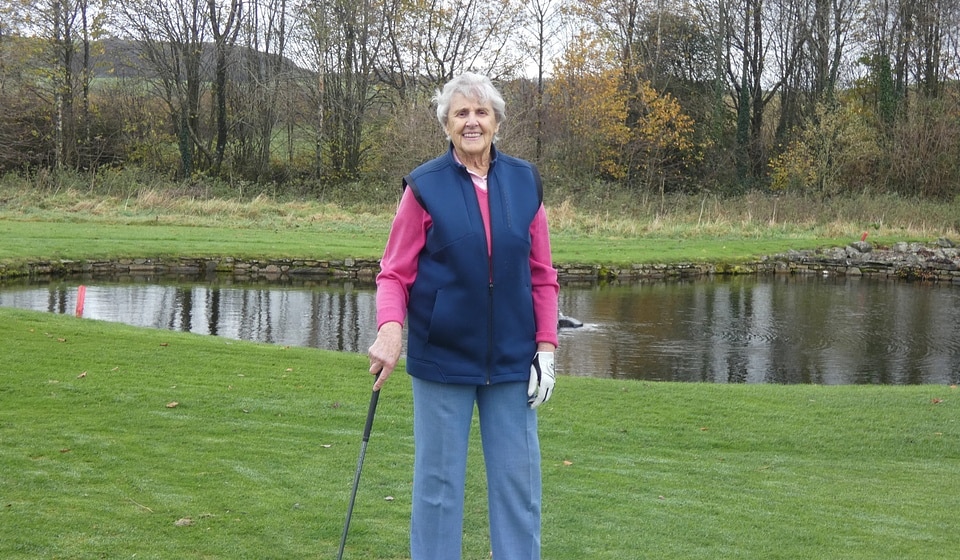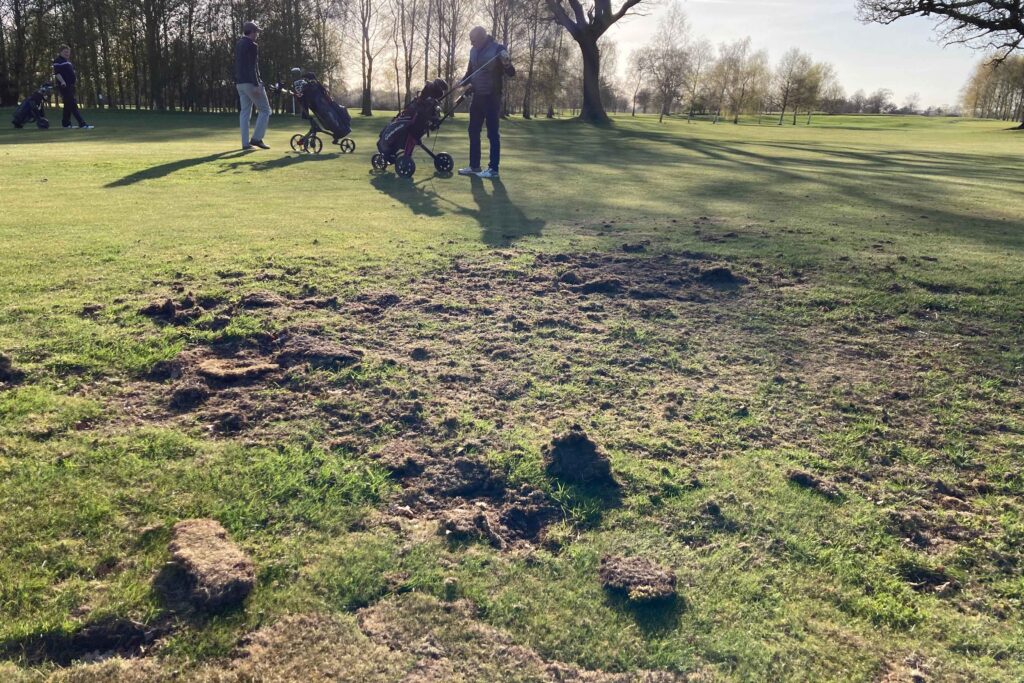
Leatherjackets: The tiny pests threatening the future of golf courses
Huge numbers of leatherjackets and chafer grubs are causing tremendous damage to courses all across the UK.
Hidden below the surface of our golf courses, tiny grubs are threatening the viability of our sport.
You may have seen the social media posts – the swathes of damaged turf that look like they’ve been ploughed by a digger, or the groundsheets festooned with tens of thousands of the creatures that are keeping your course manager awake at night.
A recent survey by Syngenta found that, during 2020, just one per cent of layouts reported no damage due to these insects.
Some 400 course managers responded. Almost all reported their course was negatively impacted by an infestation of the pests.
Leatherjackets are the larvae of craneflies, while chafer grubs are the larvae of the chafer beetle. Typically, leatherjackets thrive on clay dominated soils, while chafer grubs prefer a sand dominated surface.
Both feed on the roots of the grass plant, meaning it can’t take up nutrients and can cause it to dieback.
But equally as problematic, the grubs are a veritable feast for birds and badgers and they can turn a fairway into a ploughed field overnight.
They were once kept in check by chemicals, but a pesticides ban implemented around five years ago is now starting to really hit home.
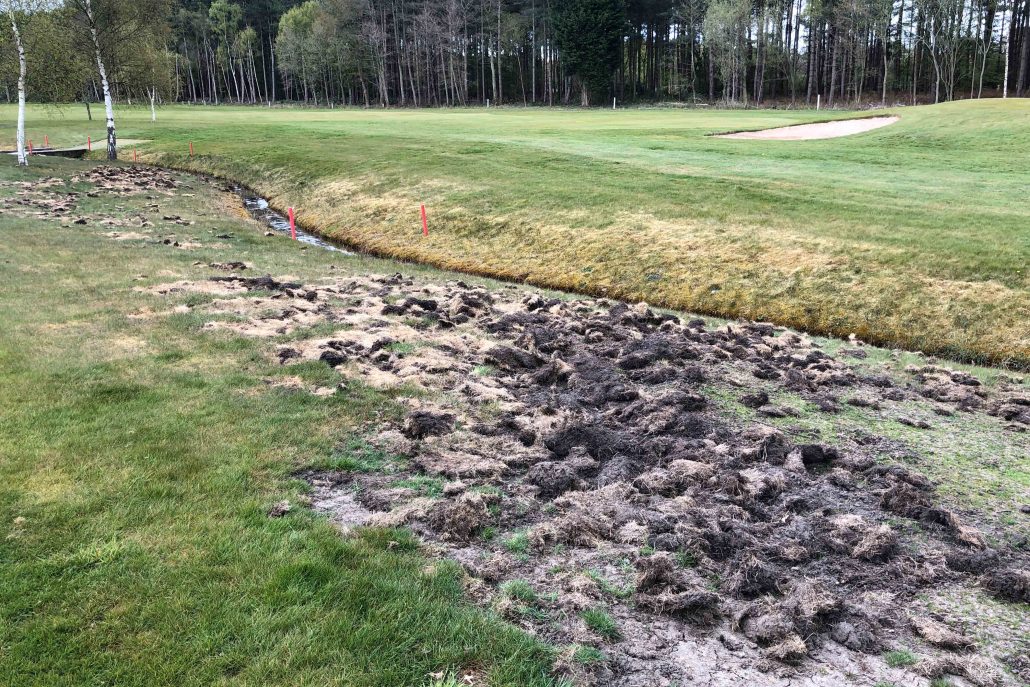
The removal of pesticides containing the active ingredient chlorpyrifos – described by the World Health Organisation as “moderately toxic to humans” – and products that contain the similarly acting imidacloprid have left courses largely defenceless against an explosion in numbers.
Emergency uses of insecticides for those who are worst affected can stem the tide but, combined with the rise in turf disease and the problems of worm casts, the British and International Golf Greenkeepers Association say the impact can be serious.
The association, along with Syngenta, will later this month host an industry event that will focus on the threat caused by these insects: from increased costs as teams battle against the damage, or golfers migrating to the ever-decreasing number of clubs who have yet to suffer the full effects.
Syngenta Technical Manager Glenn Kirby will explain the reasons for the damage and why the industry must unite to support clubs in a BIGGA seminar that aims to be a clarion call to golf as a whole.
They will also distribute a white paper that will “provide an in-depth study of the situation including its causes, impact and potential solutions and will also be encouraging golf’s leading bodies to share this information to a wide audience”.
Kirby said: “My goal when I started investigating the problem of leatherjackets was to get all golf courses to zero damage, as that’s what is being expected of course managers.
“But it has become increasingly clear to me that we are going to have to adjust our expectations. We all want perfect surfaces year-round, but without additional tools in our armoury I suspect that may not be a realistic goal.”
- NOW READ: The incredible numbers that prove just how much extra work the Covid boom has given greenkeepers
Subscribe to NCG
Steve Carroll

A journalist for 25 years, Steve has been immersed in club golf for almost as long. A former club captain, he has passed the Level 3 Rules of Golf exam with distinction having attended the R&A's prestigious Tournament Administrators and Referees Seminar.
Steve has officiated at a host of high-profile tournaments, including Open Regional Qualifying, PGA Fourball Championship, English Men's Senior Amateur, and the North of England Amateur Championship. In 2023, he made his international debut as part of the team that refereed England vs Switzerland U16 girls.
A part of NCG's Top 100s panel, Steve has a particular love of links golf and is frantically trying to restore his single-figure handicap. He currently floats at around 11.
Steve plays at Close House, in Newcastle, and York GC, where he is a member of the club's matches and competitions committee and referees the annual 36-hole scratch York Rose Bowl.
Having studied history at Newcastle University, he became a journalist having passed his NTCJ exams at Darlington College of Technology.
What's in Steve's bag: TaylorMade Stealth 2 driver, 3-wood, and hybrids; TaylorMade Stealth 2 irons; TaylorMade Hi-Toe, Ping ChipR, Sik Putter.






